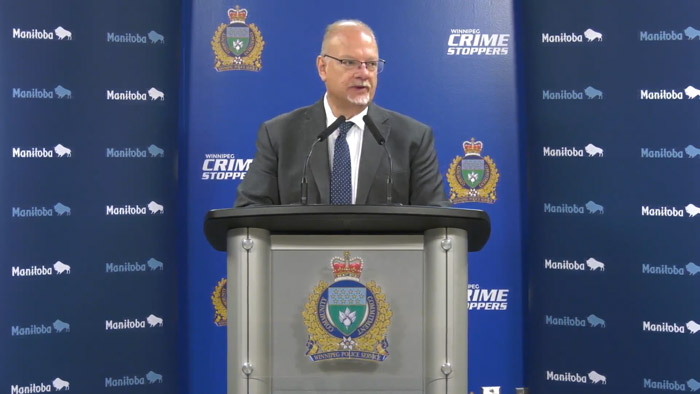Steinbach MLA and Justice Minister Kelvin Goertzen announced that the Manitoba government is investing an additional $4.3 million in capital funding for the 48-unit affordable housing project being developed at the site of the former Fleming School and providing $2 million for the establishment of a state-of-the-art sobering centre, along with $1.5 million in annual operating funding and $4 million for an attached transitional housing facility in Brandon.
“All Manitobans deserve to have a safe, affordable home that meets their needs,” said Families Minister Rochelle Squires. “Affordable housing is more than simply a place to call home. It strengthens communities and our province as a whole. Our government is pleased to continue making important investments to meet the needs of low- and moderate-income Manitobans and build off our homelessness strategy, A Place for Everyone.”
This funding at the Fleming site will ensure the project can remain operationally viable and advance to the construction phase in light of ongoing, industry-wide cost increases and supply chain issues that have challenged the completion of the project, Squires noted.
The new funding builds on a previous $1.56-million investment provided through the bilateral National Housing Strategy agreement. The City of Brandon also allocated $1.56 million from municipal grant funding for the project, in addition to providing the land for the project, and offering a 20-year tax-offsetting grant for the project developer.
“The establishment of the sobering centre and transitional housing project in Brandon marks a significant step forward in our efforts to promote restorative justice principles and create a safer community,” said Goertzen. “By working together with the John Howard Society and other partners, we are addressing the underlying factors contributing to crime and providing much-needed support to vulnerable individuals in our society.”
In collaboration with the John Howard Society, the Manitoba government will provide $4 million to establish a transitional housing project in Brandon. The project will see 24 units constructed including 16 micro suites for short-term transitional housing (three-month stays) and eight units for longer-term transitional housing (12-month stays). An additional $5 million in funding from the Canada Mortgage and Housing Corporation through the Rapid Housing Initiative will support the development of the project.
The John Howard Society offers programs, support and resources based on the principles of restorative justice to individuals at various stages of involvement with the justice system. With a focus on men over the age to 18 who have been or may be incarcerated, their families, victims of crime, and the community, the organization works diligently to create positive change in the lives of those it serves, Goertzen noted.
The sobering centre will be supported with one-time funding of $2 million for its establishment and the Manitoba government will provide $1.5 million in annual funding moving forward for the centre’s operations.
Once operational, the sobering centre will provide a safe and supervised environment for individuals under the influence, offering withdrawal management, relationship-focused supports, and harm reduction services. This low-barrier service will address the acute intoxication gap within Brandon, enhance addiction services in surrounding areas, improve police responses, and reduce the burden on the health-care system, the ministers noted, adding that it will also include culturally informed approaches to meet the needs of Indigenous Peoples.
“A sobering centre for the city of Brandon is welcome news. As a police service we have long realized that detaining individuals in our detention unit under the Intoxicated Persons Detention Act to keep them safe was not the best option – but it was our only option,” said Randy Lewis, acting chief, Brandon Police Service. “In the future the centre will provide a safe place to become sober for those struggling with addiction and will present an opportunity to offer supports to those individuals, which can lead to significant positive long-term outcomes for them. This investment will reduce the strain put upon police resources and free up officers who can focus that time to address actual criminal activity in our community.”
The sobering centre project aims to assist the community through an accessible, collaborative, community-based, non-punitive, safe, trauma-informed, and cost-effective approach through a short-term care facility medium. It will have the capacity to house a maximum of 15 to 17 individuals onsite at any given time and will include a dormitory for males, a dormitory for females, private rooms for individuals with specific gender identification and other varying needs requiring security and safety, one stimulant room, and an appropriate number of secured gender-neutral units to be used for people brought in by law enforcement officers under the Intoxicated Persons Detention Act.
“The City of Brandon is thrilled with today’s announcement from the Manitoba government,” said Mayor Jeff Fawcett, City of Brandon. “Brandon City Council is committed to partnering with all levels of government and local agencies to see the implementation of a net zero homelessness plan in our city. The investments for affordable and transitional housing will directly impact those most vulnerable in our community and the sobering centre will provide a safe place to serve people who may be struggling with substance use of any kind. This will also be a benefit to our front-line staff that render assistance when needed.”
“We are grateful for the overwhelming support our project has received from all levels of government and humbled by their confidence in our vision and ability to execute. This Brandon-made solution was only possible through consultation and collaboration with our not-for-profit and governmental partners who are working towards a better and safer Brandon,” said Ross Robinson, executive director, John Howard Society of Brandon.
This transformative initiative represents a significant step towards achieving a more compassionate and effective approach to addressing issues related to the justice system, the ministers noted, adding the Manitoba government is proud to be working alongside the John Howard Society and other partners in Brandon to create a safer and more supportive community for all its residents.





